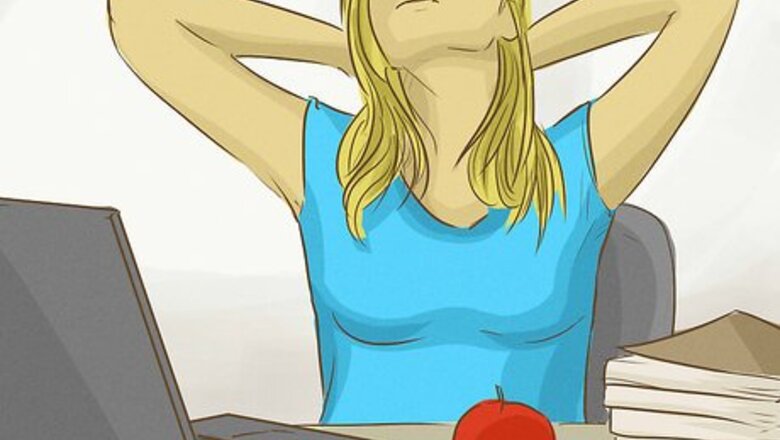
views
Keeping Your Body Alert
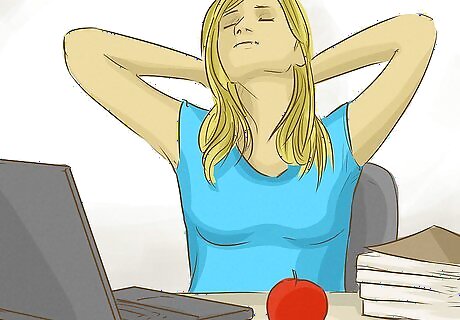
Keep your body alert. In addition to stimulating your senses, you can trick your body into being more alert than you really feel. Taking the time to move around, touch your earlobes, or rub your hands together can make you feel more awake and active. Here are a few things you can do to keep your body more alert: Splash your face with cold water. Try to keep your eyes open as you splash water on your face without hurting them. Gently pull down on your earlobes. Pinch yourself on your forearm or under your knees. Put your hands in fists and open them. Repeat ten times. Tap your feet lightly on the floor. Stretch your wrists, arms, and legs. Roll your shoulders. Step outside and fill your lungs with crisp fresh air. Massage your hands.
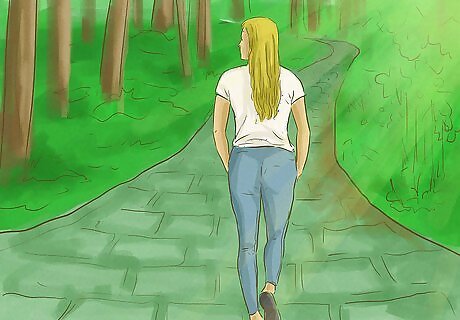
Keep your body active. You don't have to run a marathon to be active. Just a little bit of physical activity can snap your body awake. There are ways to boost your activity level even if you're at school or work, and just a few minutes of exercise can have a dramatic impact on how awake your body is. Exercising is a way of telling your body that it's not time to go to bed yet. Here are a few things you can do: Take the opportunity to walk whenever you can. If you're at work, take the long way to get to the break room, or walk across the street to get coffee. If you're at school, take the long way to your next class, or even take a lap around your cafeteria before you sit down to eat. Take the stairs instead of the elevator when you can. Unless you're headed to the fiftieth floor, taking the stairs will give you more energy than standing around in the elevator. It will get your heart rate going and will keep you alert. Make time for a ten-minute walk when you can. While you may not be able to exercise right then and there, make a habit of exercising regularly, for at least thirty minutes a day. Daily exercise is proven to improve your energy level and to help you stay alert.
Using Food to Stay Awake
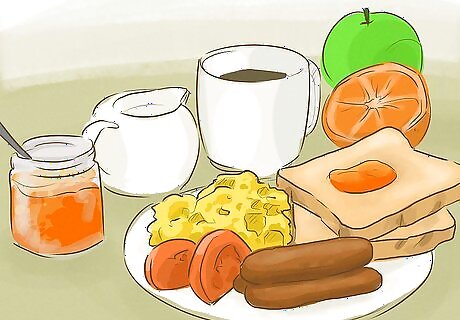
Start your day off with a healthy breakfast. Eat eggs, turkey, and a little bit of light toast. Or try some oatmeal and yogurt. Add greens to your breakfast, such as spinach, celery, or kale. If you don't feel right about eating so many vegetables for breakfast, make a smoothie, or pick up a smoothie on your way to school or work.
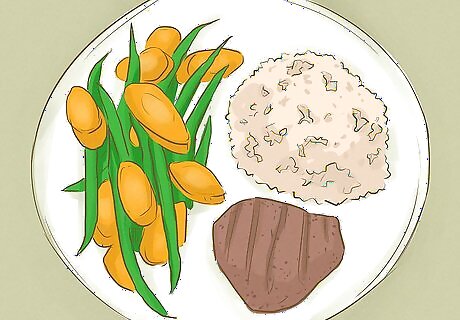
Eat well. Eating the right foods can help boost your energy level, make you more alert, and give you some fuel to run on for a few hours. The wrong foods can make you feel sluggish, bloated, and even more tired than you would feel if you barely ate anything. Here are some tips for eating well to boost your energy and to make you less tired: Avoid eating foods that are high in sugar and simple carbs. Don't eat huge meals. Instead, eat a few measured meals a day, and graze lightly throughout the day when you're feeling hungry. Avoid eating heavy meals, starchy foods, high-fat meals, and alcohol. All of these will make you more tired and will wear on your digestive system. Don't skip meals. Even if you're so tired that the thought of food doesn't appeal to you one bit, not eating will make you much more fatigued.
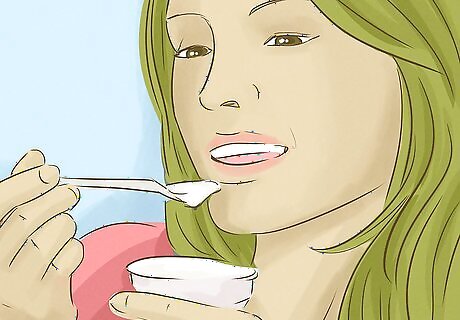
Carry around snacks or foods that are high in protein, such as almonds or cashews. Bring fruit with you wherever you go. Not only is this healthy, but it will keep you from indulging in a high-sugar snack in a pinch. Snack on peanut butter and celery or yogurt.

Have some caffeine if you need it. Caffeine will certainly help you stay awake, but if you overload on it or drink it too quickly, you will get a headache and will crash. Have a cup of green tea or coffee when you need it, and drink it slowly or you will crash and/or get a stomach ache. You can also get some caffeine from dark chocolate. Caffeine flavoured sweets can trick your brain into keeping you alert. Avoid energy drinks. Though they will give you a quick fix for waking up, in the long run, they will make you feel tired while also disturbing your ability to sleep, which will make you more tired the next night.
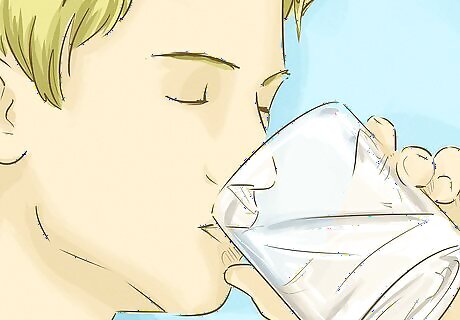
Drink cold water. Lots of it. Staying hydrated will keep you awake.
Keeping Your Mind Awake

Keep your mind alert. Keeping your body awake and alert won't take you very far if your mind is always drifting off. To keep your mind alert, you have to be actively engaged in thought, whether you're holding up a conversation or listening to your teacher speak. Here's what you can do to keep your mind alert: If you're in class, make an extra point of paying attention. Write down everything your teacher says and even reread it to stay focused. Raise your hand and answer questions. If you're confused about a certain concept, ask a question. You'll be unlikely to fall asleep if you're in the middle of a conversation with your teacher. If you're at work, talk to a colleague about a work-related task or strike up a conversation about history or politics, or even your family, if you're on a break. If you're struggling to stay awake at home, call a friend, write an email, or listen to an engaging radio talk show. Switch tasks. To keep your mind active, try to switch tasks as often as you can. If you're in school, you can do this by writing with a new pen, using a highlighter, or getting up to get a drink of water. If you're at work, take a break from typing to make copies or file papers.
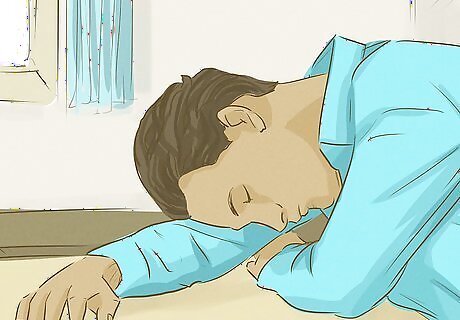
Take a power nap. If you're at home or at work, taking the time to take a quick power nap for 5-20 minutes can help you give your system the boost that it needs to keep going. Sleeping for longer than that will make you feel more tired for the rest of the day and will also make it harder for you to fall asleep at night. Here's how to do it: Find a comfortable spot. If you're at home, a couch is ideal, and if you're at work, recline in your chair. Minimize distractions. Turn off your phone, close your door, and do what you need to do to let others around you know you're sleeping. When you wake up, take a deep breath, and have a glass of water and some caffeine to feel energized. Take a three-minute walk to get your body going. If you're having trouble taking a power nap, try using a power-nap app on your smartphone to help you fall asleep.

Look at flashing colors. Download an app onto your smartphone that displays bright luminous colors. This can activate the receptors in your brain that alert you staying awake. This is also why using iPads, etc. before sleep-time can harm your chances of getting good sleep.

















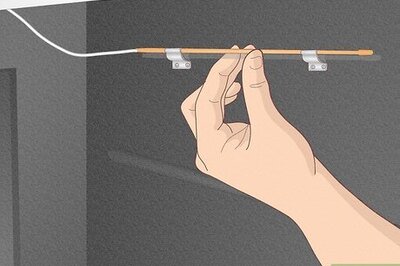


Comments
0 comment